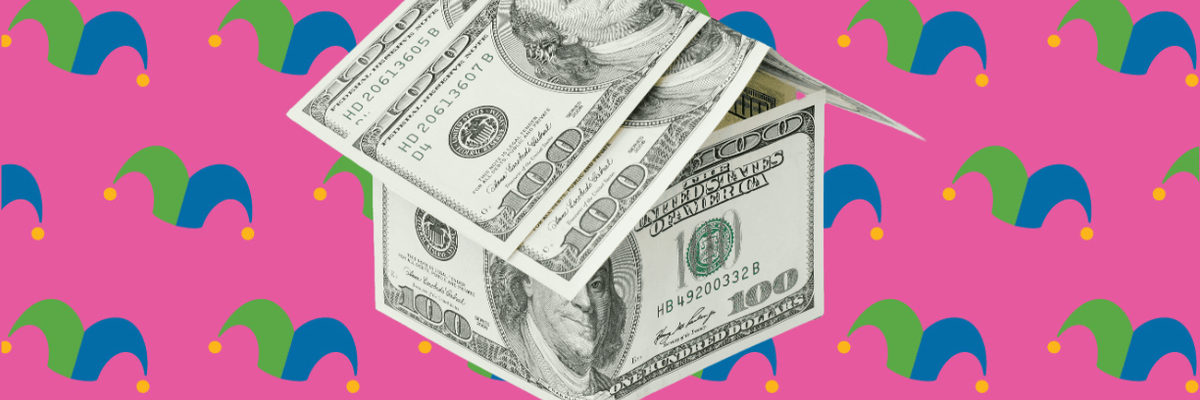Decoding Mortgage Interest Rates: How Can You Tell When It's Time to Buy?
KEY POINTS
- Assess your financial stability with a realistic budget and long-term goals.
- Evaluate your timeline -- buy only if you're staying put for at least three years or can rent out the property.
- Ensure you're emotionally prepared for maintenance, responsibilities, and potential partnership challenges.
Mortgage interest rates. The phrase alone is enough to make most of us want to hide under a pile of Zillow listings. But fear not! Decoding the mystery of when to buy a home doesn't require a crystal ball or a Ph.D. in economics -- just a little strategy and self-reflection. Let's break it down.
The simple rule: Love it and afford it
Jennifer Beeston, Mortgage Lender, SVP of Lending at Rate.com, sums it up perfectly in a recent interview with Motley Fool Money: "The key to deciding when it is a good time to buy is unique to your situation. The simple rule is that if you love the house and you can afford the house, then it is a great time to buy."
In other words, don't get too hung up on the numbers. Sure, finding the best interest rates matter, but the house itself should make your heart skip a beat (in a good way). If the math checks out and you can see yourself sipping coffee in that dreamy kitchen, then it might be time to take the plunge.
Need help finding the best rates? Check out the best mortgage rates here and find a lender that works for you.
Why interest rates aren't everything
Many buyers fixate on interest rates, thinking they're the golden ticket to a perfect home. But let's rewind to 2022 when rates hit historic lows. What happened? Bidding wars. Buyers settling for houses they didn't like. Tears (probably).
As Beeston notes, next year could bring great opportunities for buyers to research and watch the market. So, rather than obsessing over rates, focus on the bigger picture. Can you afford the monthly payment comfortably? Does the house fit your long-term goals?
Key questions to consider before buying a home
Buying a home is a big decision, and it's not just about falling in love with a place. Before you take the plunge, ask yourself these important questions.
Am I planning to stay for a while?
If you're not planning to live in the area for at least three years, hit pause and think: What happens if you need to move sooner? Could you rent the property for close to your mortgage payment?
Selling a home too quickly often doesn't leave enough equity to cover costs. But if you're ready to settle down -- or the numbers work for renting -- it could still be a smart move.
Am I financially stable?
Budgeting isn't just for spreadsheets and overachievers. Before buying, calculate what your housing payment would be and try living with that expense for a few months. If you're not cutting back on retirement savings or living on instant noodles, you're likely in good financial shape.
One key tip: Don't rely solely on your lender to determine what you can afford. Even the best mortgage lenders’ calculations don't factor in your long-term financial goals, so advocate for yourself.
Am I emotionally ready?
Homeownership isn't just about money; it's a lifestyle shift. Leaky pipes and lawn care don't fix themselves, so ask yourself if you're ready to take on maintenance -- or hire someone to handle it.
If you're buying with a partner, have a serious conversation about finances. It might not be romantic, but drawing up a legal agreement can protect both of you in case things don't go as planned.
Am I considering an investment property?
Thinking of buying a home as an investment? Do your homework. Research the area, learn landlord rules, and decide whether your goal is long-term appreciation or cash flow. Having clear goals and understanding the local market can save you from future headaches.
By answering these questions honestly, you'll gain clarity on whether now is the right time to buy -- and make a decision that supports both your wallet and peace of mind.
The bottom line
The crystal ball says interest rates will likely stay elevated and volatile through 2025. Beeston advises shopping around for lenders and comparing rates and fees. Some lenders even allow you to lock your rate while shopping, offering peace of mind in a fluctuating market. And if rates drop, you can renegotiate.
Ultimately, there's no universal "right time" to buy a home -- it depends on your individual situation. If you've done the math, asked yourself the hard questions, and found a house that feels like home, it might be time to move.
And remember: Interest rates are just one piece of the puzzle. The real goal is finding a house you love at a price you can afford without losing sleep over the decision.
Our Research Expert




